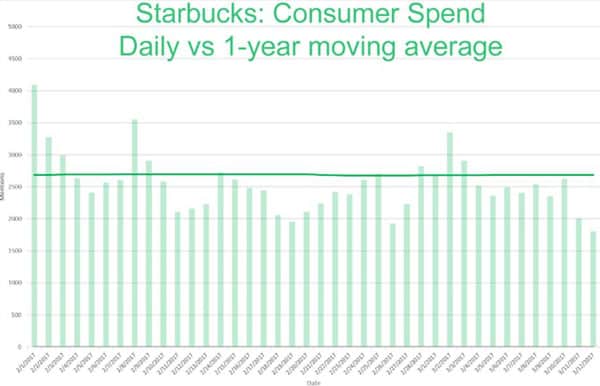The Backlash Against Starbucks Is Real, and It Isn’t Going Away
Andy Swan, Forbes, March 19, 2017
On January 29, Starbucks reacted to President Trump’s travel ban by issuing a statement that it would hire 10,000 refugees. This announcement has backfired with consumers in a big way.
{snip}
The backlash was immediate. Over the next few days, consumer buzz on Twitter spiked higher . . . and not in a good way. During that those few days, Starbucks saw its Consumer Happiness level go from its normally impressive 75% positive all the way down to 40% positive. That’s right — six out of every 10 opinionated tweets about the company were negative:

{snip}
A loss of 7-9% in consumer happiness levels is a big problem, especially when it is sustained for a significant period of time like this.
{snip}
To see whether the backlash is affecting actual spending, we need to drill down into LikeFolio’s Consumer Spend metrics for the company. These are measurements of people actually talking about being in the stores and buying the products… {snip}
{snip}

Starbucks has seen Consumer Spend mentions BELOW its one-year moving average for 80% of the days since the refugee hiring announcement.
{snip}
The data is clear — consumers are not happy with Starbucks’ decision to prioritize hiring refugees.
As a direct result of Starbucks’ announcement to hire 10,000 refugees, the company’s brand value has taken a significant hit, they’re losing market share to competitors, and sales are dropping.
{snip}















